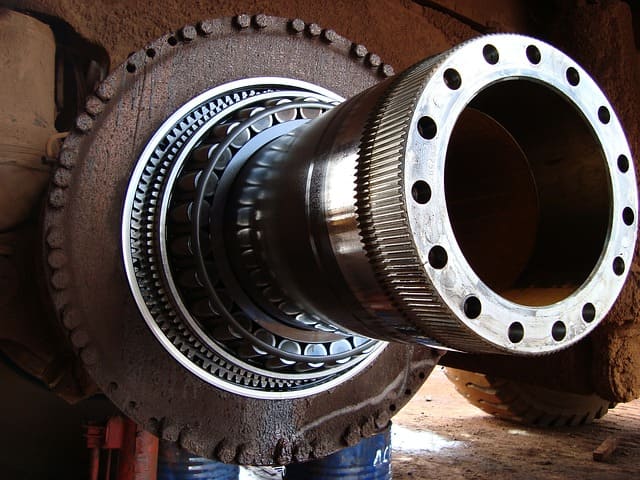Choosing the right lubricant for moving parts is crucial to ensuring machinery runs efficiently and lasts longer. Grease, a thick lubricant, is essential for bearings, joints, and other mechanical parts, particularly in vehicles. It not only reduces friction and wear but also forms a protective barrier against rust. However, with various types of grease available, one common question arises: Is synthetic grease better?
Synthetic grease, formulated with synthetic base oils, outperforms regular grease in several ways. It maintains consistency under extreme temperatures, offers superior water resistance, and provides extended lubrication intervals. This makes it ideal for high-pressure, high-heat applications where conventional grease might fail. Whether it’s for automotive use, industrial machinery, or specialized equipment, synthetic grease ensures reliable performance and longevity.
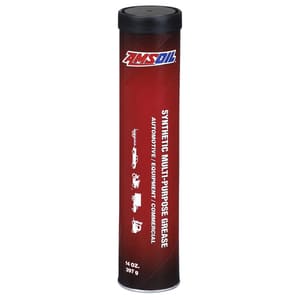
Understanding these benefits can help in making informed decisions about maintenance, ultimately leading to better efficiency and less downtime. Regularly inspecting and using the right type of grease, as recommended in the vehicle’s manual, can significantly enhance the longevity of mechanical components.
Understanding Synthetic Grease
Synthetic grease is a lubricant designed for moving parts, capable of handling high pressure and heat. It’s often used in bearings, joints, and other mechanical parts in vehicles. Below is a closer look at what makes synthetic grease unique and why it might be better than regular grease.
What is Grease?
Grease is a thick lubricant used to reduce friction and wear between moving parts. It forms a thin film that lowers heat and extends the life of components. Grease also prevents rust by creating a barrier between metal parts and the environment.
Lubrication: Grease reduces friction and wear, forming a protective film.
Heat Management: It helps in lowering heat generated from friction.
Rust Prevention: Acts as a barrier to prevent rust and corrosion.
Components of Grease
Grease is composed of base fluids, thickeners, structure modifiers, and performance additives. Here’s a breakdown:
Base Oils: These can be either petroleum or synthetic. Low-viscosity oils make low-temperature greases, while high-viscosity oils are suitable for high-temperature conditions.
Thickeners: They provide the appropriate consistency and can be organic or inorganic.
Additives: Extreme-pressure agents and anti-wear agents are common performance enhancers.
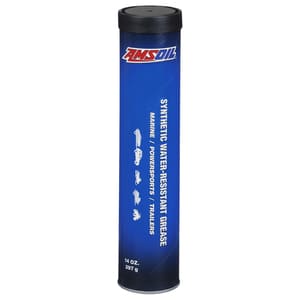
Why Use Synthetic Grease?
Synthetic grease often outperforms regular grease due to its superior properties. Here are some reasons why:
Wide Temperature Range: Synthetic base oils offer better performance over a broad temperature range. They remain stable in extreme heat and cold.
Consistency: The consistency provided by synthetic thickeners is often more reliable, reducing the chances of leakage.
Longer Lifespan: Synthetic greases tend to last longer, requiring less frequent replacements.
Specialized Uses
Different greases are designed for specific applications. For instance, some are excellent for wheel bearings, while others are better for universal joints. Using the right type of grease is essential, as the wrong kind can break down or be too thick.
Wheel Bearings: Require greases that can handle rotational speeds and temperatures.
Universal Joints: Need greases with extreme-pressure additives.
Classification and Testing
Grease is classified into nine grades by the NLGI, ranging from fluid (NLGI #000) to nearly solid (NLGI #6). The most common grade for automotive use is NLGI #2. The Cone Penetration Test measures consistency: a higher number means lower consistency. The ASTM D4950 standard sets performance specifications for automotive greases, with GC-LB indicating top performance.
Regular Maintenance
Regular checks and maintenance are crucial. Owners should refer to their vehicle manual for the right type of grease and inspect levels regularly to ensure optimal performance and longevity of mechanical parts.
In conclusion, synthetic grease offers many advantages over regular grease. Its ability to perform under a wide range of temperatures, maintain consistency, and provide longer-lasting lubrication makes it a preferred choice for many applications in the automotive industry and beyond.
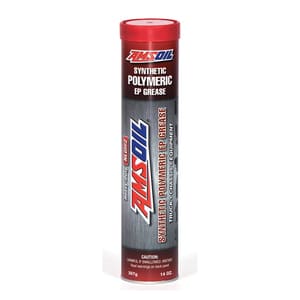
Performance Advantages of Synthetic Grease
When it comes to lubrication solutions, understanding why synthetic grease is better than regular grease can be a game-changer for machinery maintenance. Grease plays a critical role in the smooth operation of moving parts, keeping them running efficiently, and reducing wear and tear. Let’s explore the performance advantages of synthetic grease, especially focusing on temperature resistance and performance in extreme conditions.
Temperature Resistance
Synthetic grease shines when subjected to extreme temperature fluctuations. Unlike regular grease, synthetic variants are engineered to maintain their viscosity across a wider temperature range. What does this mean? Simply put, synthetic grease won’t get too thick in cold weather or too thin in hot conditions.
Higher Flash Point: Synthetic grease has a higher flash point, making it less likely to ignite under high temperatures.
Stable Viscosity: The viscosity of synthetic grease remains consistent, ensuring continuous protection and performance.
Less Degradation: Over time, synthetic grease doesn’t break down as quickly as regular grease, offering prolonged performance.
Think of synthetic grease as a high-performance sports car that can tackle both icy roads and desert heat without missing a beat.
Low and High-Temperature Performance
Regular grease often falters when faced with extreme temperatures, which can seriously impact machinery efficiency. Synthetic grease, on the other hand, excels in both freezing cold and scorching hot conditions.
Cold Conditions:
Stays Flexible: Unlike regular grease, synthetic variants stay flexible in extremely low temperatures, ensuring that machinery can start smoothly without resistance.
Better Flow: Even in sub-zero temperatures, synthetic grease flows better, which means it can reach and lubricate moving parts more effectively.
Hot Conditions:
Heat Stability: Synthetic grease is designed to withstand higher temperatures without melting or becoming too runny.
Prevents Overheating: By maintaining its structure, synthetic grease prevents overheating, which can be a common issue with regular grease at high temperatures.
By performing well in both cold and hot environments, synthetic grease enhances overall machinery efficiency and longevity. It’s like having a tire that grips equally well in snow and on hot asphalt, providing reliable performance no matter the climate.
Understanding the benefits of synthetic grease over regular grease is crucial for anyone involved in machinery maintenance. From its stable viscosity to its excellent performance in extreme temperatures, synthetic grease is the go-to solution for ensuring mechanical parts run smoothly and efficiently.

Chemical and Physical Properties
In the world of machinery and moving parts, grease plays a vital role. It’s a thick lubricant designed to stay put even under high pressure and heat. It’s often used in bearings, joints, and other mechanical parts, especially in vehicles. Grease reduces friction and wear by forming a thin film between surfaces, lowering heat and extending the life of components. It also prevents rust by creating a barrier between metal parts and the environment.
Longevity and Oxidation Resistance
One of the standout features of synthetic grease is its resistance to oxidation and degradation over time. Regular grease tends to break down when exposed to oxygen, heat, and contaminants. This degradation can form harmful deposits and even cause the grease to harden or lose its lubricating properties.
Synthetic grease, however, is designed to resist these issues. Here’s why it’s better:
Oxidation Resistance: Synthetic grease contains additives that protect it from reacting with oxygen. This means it remains stable even when exposed to high temperatures and pressure.
Longevity: Due to its resistance to oxidation, synthetic grease lasts much longer than regular grease. This translates to longer maintenance intervals, saving both time and money.
Consistent Performance: Unlike regular grease, which can become ineffective due to oxidation, synthetic grease maintains its properties over time, ensuring that machinery runs smoothly without unexpected breakdowns.
In essence, the use of synthetic grease ensures that mechanical parts are better protected, reducing the risk of wear and tear. For vehicle owners and industrial users alike, this means fewer interruptions and longer equipment life.
Would you use a product that requires constant replacement, or one that keeps your machinery running smoothly for longer? The choice is clear: synthetic grease is better.
Features & Benefits of AMSOIL Synthetic Greases
AMSOIL synthetic greases offer a range of features and benefits that make them superior to regular greases. Known for their high performance, these greases are particularly beneficial for applications requiring extreme pressure and load-bearing capabilities, as well as those exposed to water. Here’s a closer look at two key features:
Water Resistance
AMSOIL synthetic greases excel in water resistance, making them ideal for marine and outdoor applications. Whether it’s a boat trailer wheel bearing or machinery exposed to rain and humidity, AMSOIL synthetic greases provide unparalleled protection:
Stays in Place: Unlike regular grease that washes off easily, AMSOIL synthetic greases are designed to stay in place, even in wet conditions.
Prevents Rust and Corrosion: The water-resistant properties help create a barrier between metal parts and water, preventing rust and corrosion.
Longevity in Moist Environments: These greases maintain their integrity and continue to lubricate effectively, even in long-term exposure to water.
Extreme Pressure and Load-Bearing Ability
For equipment that operates under high pressure and heavy loads, AMSOIL synthetic greases prove to be exceptionally reliable. Here’s why they stand out:
Superior Load-Bearing Capacity: AMSOIL synthetic greases are engineered to handle extreme pressure and heavy loads without breaking down.
Reduces Wear and Tear: By forming a strong protective film between moving parts, these greases reduce friction and wear, extending the lifespan of components.
Consistent Performance: Even in demanding environments, AMSOIL synthetic greases maintain their performance, ensuring equipment runs smoothly.
To sum up, AMSOIL synthetic greases offer superior water resistance and exceptional load-bearing capabilities. These features make them a go-to choice for both marine applications and high-pressure environments.
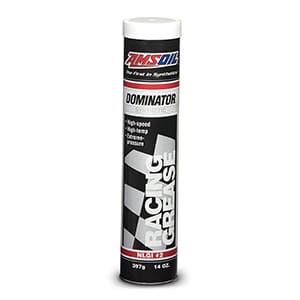
Cost-Effectiveness of Synthetic Grease
Synthetic grease offers a range of advantages that make it a cost-effective choice over regular grease. Although it has a higher upfront cost, the long-term savings and benefits can be substantial.
Lower Maintenance Costs
One of the most significant ways synthetic grease saves money is by reducing maintenance costs. Regular grease often requires frequent reapplication, while synthetic grease lasts longer, reducing the need for periodic maintenance.
Longer Re-greasing Intervals: Synthetic greases maintain their properties longer, so you don’t have to re-grease components as often.
Reduced Downtime: Less frequent maintenance means equipment spends more time in operation and less time being serviced.
Fewer Repairs: By reducing friction and wear, synthetic grease helps extend the lifespan of mechanical parts, leading to fewer breakdowns and repairs.
Enhanced Equipment Life
Another key area where synthetic grease proves its value is in extending the life of equipment.
Better Lubrication: Synthetic grease forms a more durable film between surfaces, reducing wear and tear.
Heat Resistance: It performs better under extreme temperatures, preventing breakdowns that can be costly to fix.
Rust Prevention: The grease creates a barrier against moisture, reducing the risk of rust and corrosion.

Efficiency in High-Temperature and High-Pressure Applications
Synthetic grease is often designed to perform under high pressures and temperatures where regular grease would fail. This makes it particularly useful in heavy-duty applications, such as in industrial machinery and automotive parts.
Consistency in Extreme Conditions: Synthetic grease doesn’t break down as easily under harsh conditions, making it more reliable.
Reduced Wear: It contains additives that enhance its performance, offering better protection for moving parts.
Common Misconceptions About Synthetic Grease
Synthetic grease often faces misunderstandings and myths. These common misconceptions can cloud judgment and lead to less effective choices in lubrication. Here, the focus will be on dispelling those myths and showcasing the true value of synthetic grease.
Synthetic Grease is Too Expensive
Many believe that synthetic grease is too pricey compared to regular grease. This can make people think it’s not worth the extra cost. However, when looking at the total cost of ownership, synthetic grease can be more economical.
Longer Lifespan: Synthetic greases last longer because they don’t break down as quickly under high pressure and heat. You’ll use less grease over time, saving money on frequent purchases.
Reduced Equipment Wear: Since synthetic grease reduces friction and wear more effectively, it extends the life of your machinery. Think of it this way: less wear means fewer repairs and replacements, which means lower maintenance costs.
Improved Performance: Synthetic grease handles extreme temperatures better than regular grease. It won’t melt in high heat or harden in cold weather. That means your equipment runs smoother and more efficiently, which can save on operating costs.
Consider these points before deciding on the type of grease to use. Grease isn’t just grease—choosing the right one can save money and headaches in the long run.

Whether for bearings, joints, or other mechanical parts in vehicles, synthetic grease stands out. Its blend of base fluids, thickeners, structure modifiers, and performance additives makes it suitable for a wide range of applications. Remember, using the right grease not only improves performance but also protects your investments by extending the life of your equipment.
Conclusion
Synthetic grease is superior to regular grease in terms of performance, longevity, and cost-effectiveness. This is due to its advanced formulation, which includes synthetic base oils and high-quality additives.
It excels in extreme temperatures, maintaining proper viscosity and fluidity where regular grease fails. This results in better lubrication and reduced wear on components, extending their lifespan.
Additionally, synthetic grease offers better water resistance and protection against rust. This keeps mechanical parts in vehicles functioning smoothly under high pressure and heat.
By choosing synthetic grease, users ensure more efficient and reliable protection for their mechanical parts, providing a clear advantage over regular grease.
Find out more about AMSOIL synthetic greases and other oils at bestengineoilintheworld.com.

